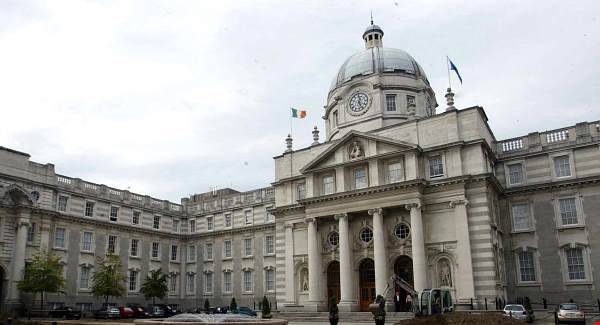The government has voted down a motion in the Dáil that would have drastically improved students’ quality of life. Students are no strangers to watching the government take stances against their needs, but this nonetheless represents blatant disinterest from the government in even considering immediate, tangible changes in students’ experience and wellbeing. It is made no less of a colossal disappointment by being entirely unsurprising.
The measures that were proposed in the motion, which was put forward by People Before Profit, would have radically changed the landscape of higher education in Ireland. It called on the government to “provide open access for all to higher education courses of their choice, without fees or barriers”. This included establishing an additional 25,000 higher education and apprenticeship places, providing free access for students and apprentices to counselling and personal education services, and enshrining proper pay for students who work on placements as part of their courses, such as nursing, midwifery, and social care. Crucially, it sought to “abolish all registration fees and tuition fees for all apprenticeships, undergraduate and postgraduate courses, and increase grants and supports to cover the real cost of education” and “return fees paid by students for the academic years affected by Covid-19”.
Beyond higher education, the motion also called on the government to abolish the Leaving Certificate, describing it as an “unnecessary stress on young people, a distorter of the education system and a barrier to accessing higher education and the life opportunities that flow from it”. This was a misstep on People Before Profit’s part. With the Leaving Cert as cemented as it is into the Irish psyche, any divergence from it will inevitably come as part of a long and slow conversation filled with reports and committees. That is not to say that the government dragging its feet on change is something to be accepted – far from it – but to acknowledge the reality that a proposal to scrap the mammoth that is the Leaving Cert was never going to be let pass on an unextraordinary Thursday, evening without much preamble. Bundling the Leaving Certificate into a wider motion on expanding access to higher education did its broader aims a disservice.
Both the radical nature of the proposed changes and the anachronistic inclusion of the Leaving Cert meant the outcome of the debate was unremarkable. The government put forward an amendment to the motion, which itself felt farcical; the amendment removed all of the original motion beyond its first three words (“that Dáil Éireann:”). Under the amendment, People Before Profit’s motion was effectively deleted. In its place was an exercise in lip service. The amended motion listed projects underway in the Department of Higher Education – some of which predate the current government – in the realm of further and higher education. In a typical self-congratulatory fashion, it concluded that this “comprehensive programme of reforms clearly demonstrates the Government’s ambition for a high-quality tertiary education system which supports everyone to achieve their full potential”.
The amended motion passed easily. 86 TDs voted in its favour – Fine Gael, Fianna Fáil, the Green Party, and the eight Independent TDs in the Regional Group. The rest of the Dáil – 56 members – voted against. The Green Party in particular should be ashamed of itself. Although its policies on access to higher education are fairly weak – making half-commitments to “reviewing” so-and-so – it is not a stretch of the imagination that its supporters would have expected more, and have been let down in a pattern has come to characterise the party’s time in government.
The predictability of the outcome makes it no less disappointing. This government and its predecessors have shown a persistent lack of intent to engage with students’ financial struggles. Year after year, grassroots campaigns, students’ unions, and the Union of Students’ in Ireland (USI) call on the government to reduce or abolish the student contribution charge. The USI in recent years has focused on asking for a reduction of €500, which would bring the charge down from €3,000 to €2,500 – still a significant sum for a student to face. Last Wednesday, USI led a virtual protest calling for an end to the charge, as well as “urgent action on student accommodation issues” and “other areas blocking access to higher education in Ireland”. Ahead of the protest, TCDSU President Eoin Hand told Trinity News that students are “sick of paying the highest fees in Europe, that we are sick of thin and weak renters rights, and we are sick of being forgotten”. 200 students from around the country joined the #Education4All protest on Zoom, which saw representatives make impassioned speeches about the burden faced by students, particularly in the context of the pandemic and a potential, looming recession. That only a day later the government voted down a motion on expanding access to higher education speaks volumes as to its interests. “Unfortunately, the Government has proposed a cynical amendment. It has a habit of doing so in respect of proposals it knows are the right things to do but that do not fit with its conservative, right-wing agenda,” said Sinn Féin’s Patricia Ryan during the Dáil debate.
It is demoralising to watch the government push student welfare aside again and again and to see the rest of the Dáil let it slide past without putting up the loud and persistent opposition these issues deserve. The opposition needs to wisen up and sharpen its teeth, and the government needs – to put it plainly – to cop itself on.






